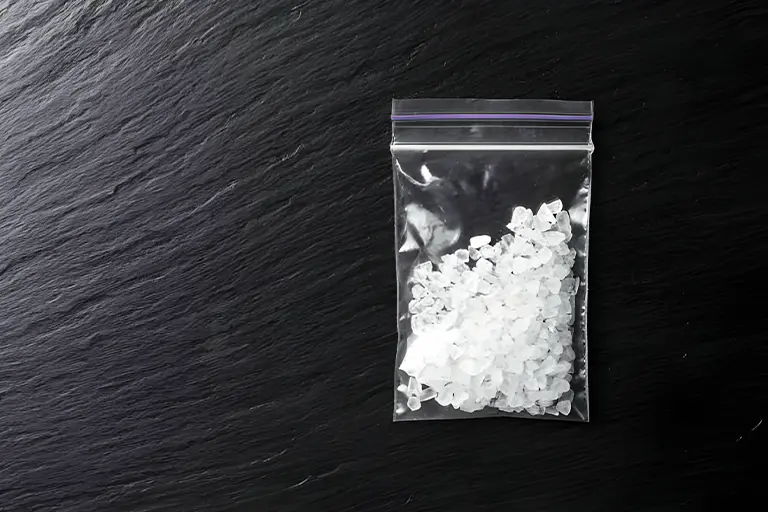What is meth mouth?
Meth mouth, also called meth teeth, is the term used for severe oral damage caused as a result of using methamphetamine (meth). The dental health consequences of this highly addictive drug are so destructive and recognizable that it has been given the name “meth mouth.”
Methamphetamine can also colloquially be called “ice,” “crystal,” “crank,” “quartz,” and “speed,” which can be smoked, snorted, injected, and taken in pill forms.
Apart from other serious health risks like stroke and permanent brain damage, meth has damaging effects on oral health, either. It results in extensive level of tooth decay, gum diseases, and eventually tooth loss. In a short period of meth use, just a year, the drug can transform a healthy set of teeth into ones that are painful, rotten, falling, blackened, and highly stained, which in most cases cannot be salvaged.
An alarming statistic on meth mouth
In a study published in the American Dental Association Journal, which examined over 500 meth users, some shocking results were revealed:
- Nearly all of the participants had cavities
- 58% had untreated tooth decay
- About one-third had six or more missing teeth
- Nearly 90% of male participants and 85% of females had periodontitis

How meth affects teeth?
There are several ways that methamphetamine will harm your teeth and robs you of having a beautiful smile.
1. Dry mouth
Meth causes reduced salivary flow and therefore leaves your mouth dry. Saliva is a natural teeth cleaner that contributes to keeping away decay-causing bacteria and washing away plaque build-ups on the surface of your teeth. When saliva is gone, bacteria find a chance to thrive and develop dental caries.
2. High-sugar craving and carbonated drinks
Diets high in sugar is the leading cause of tooth decay. Meth users’ diet is associated with high consumption of sugary foods and carbonated drinks. The bacteria in the dental plaque feed on the sugar from daily eating or drinking. With the presence of poor oral hygiene, the bacteria produce acids that dissolve enamel and cause decay.
3. Poor oral health
Meth “high” can prolong to 12 hours. During this time, brushing teeth and flossing may not have a place in users’ daily life. This, combined with high-sugar diets, leads to plaque accumulation on teeth. Bacterial plaque inhibits all areas of teeth and can progress to below the gum lines. It then starts to eat away enamel, causing decay and cavity formation with yellow, blackened, and extensively stained teeth. The dental decay can easily be seen in root surfaces of gum lines, where teeth are much more susceptible.
4. Gum disease
Poor oral health coupled with numerous other factors like smoking and unhealthy eating habits leads to a much more serious form of gum health problem called periodontal disease. Gum disease may be controllable in the still early stages known as gingivitis in which there is bleeding and inflamed gum symptoms. But once periodontitis occurs, the situation becomes irreversible. What happens is tooth loss and teeth that are falling apart.
5. Teeth grinding
Meth can cause states of hallucinations, paranoia, stress, and anxiety. Meth abusers, as a result, tend to grind or clench their teeth. This not only causes broken and chipped teeth but puts excessive pressure on facial or jaw muscles, which ends in painful temporomandibular joint disorders (TMJ).
How is the meth mouth treated?
Step up against meth which not only ruins your teeth and impacts your appearance but also makes your life psychologically and physically affected. At first, the treatment should involve overcoming the meth addiction with some significant changes made for a healthier lifestyle. If you or your loved ones are struggling with meth, it is required to find the necessary treatment from a drug counseling as soon as possible.
In addition to meth addiction treatment, the first job to recovery is to get back to the routine oral hygiene practices. Brush your teeth with fluoride toothpaste daily and have regular flossing. Limit your sugar intake, and especially avoid drinking sugary and carbonated beverages. To stay hydrated or make your dry mouth go away, drink more water instead.
Your dentist will arrange the most suitable dental treatment according to your needs. They may offer:
- Professional teeth cleaning like fluoride therapy to strengthen enamel and get rid of plaque build-ups
- Dental implant, dentures, or bridges to replace your missing teeth
- Porcelain veneers or composite veneers for heavily stained teeth
- Fillings, dental bonding, or dental crown to restore teeth affected by cavities
